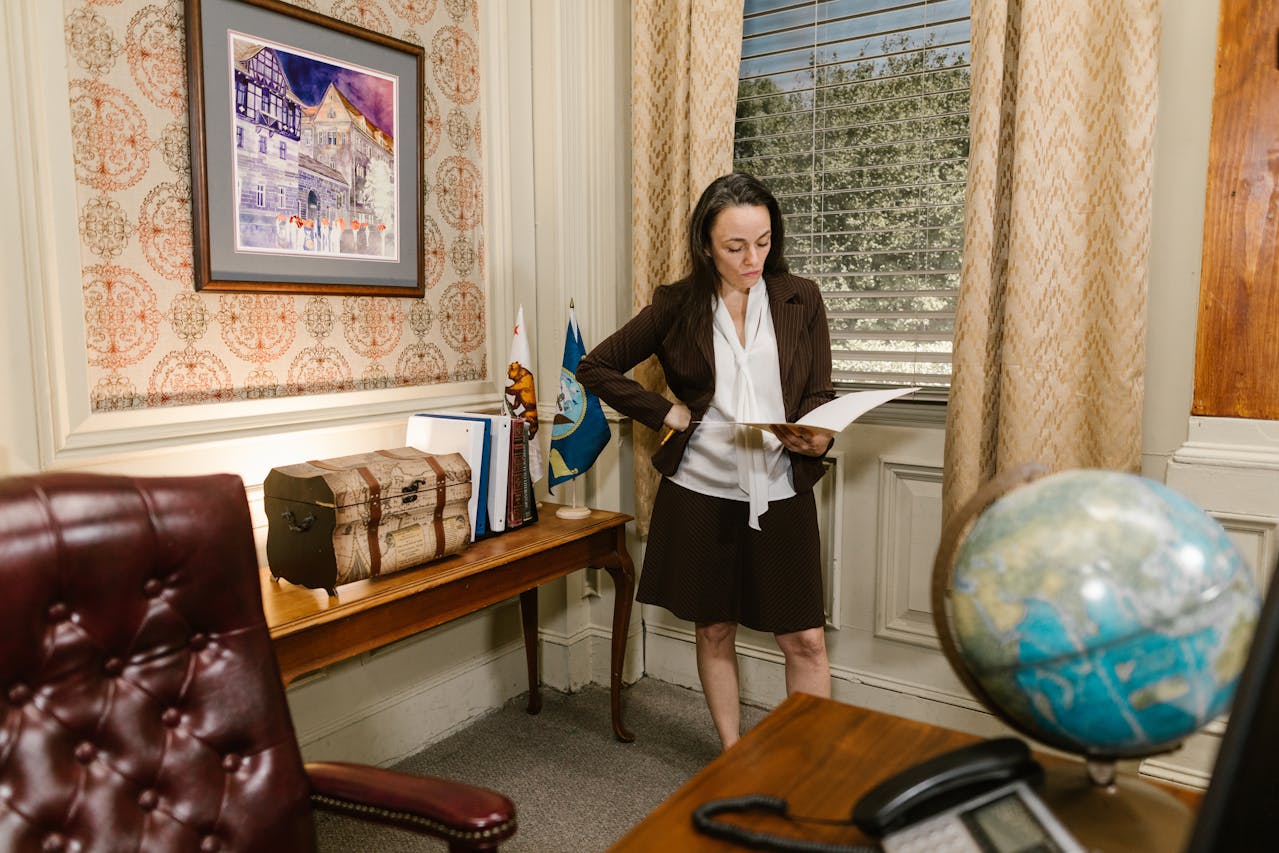

Child custody matters are already emotionally challenging, but when a child is at immediate risk, parents may need to act swiftly to obtain emergency custody. In San Diego, California family courts allow for expedited relief in situations involving imminent harm, abuse, abduction, or serious neglect. However, securing emergency custody orders requires urgency, evidence, and precise legal action.
At Minella Law Group, we help parents in crisis move quickly and strategically. This step-by-step guide explains how to secure emergency custody in San Diego, what the courts consider to be an emergency, and how to protect your child while respecting legal due process.
California courts only grant emergency custody orders in urgent situations where the child is at risk of immediate harm. Common scenarios include:
The legal standard requires that the situation present a substantial risk to the child’s health, safety, or welfare.
The strength of your emergency request hinges on your evidence. Courts require detailed, credible documentation. Examples include:
Sworn statements (under penalty of perjury) carry weight. Your attorney can help craft a declaration that presents your case clearly and persuasively.
In San Diego, emergency custody is sought through a Request for Order (RFO) with an Ex Parte Application. This means you’re asking the court to issue a temporary order without waiting for the normal notice period or hearing schedule.
You’ll need to:
In most emergency custody cases, you must give the other parent notice by 10 a.m. the day before the court reviews your request. However, the court may waive notice if:
Your attorney will help you file a Declaration Regarding Notice (FL-303) and request a waiver if needed.
San Diego courts typically review emergency custody applications within 1-2 court days. In urgent cases, a judge may:
These hearings are brief and may occur remotely or in person. Be prepared to present your facts calmly and clearly.
If the judge grants temporary orders, a formal custody hearing will usually be scheduled within 20-25 days. This is your opportunity to:
Minella Law Group builds thorough legal strategies for these follow-up hearings, including subpoenas, forensic reports, and child-centered custody proposals.
If the court grants temporary custody, comply fully with all terms. Violating the order can damage your credibility and your case. You should also:
Courts value parents who act in good faith and prioritize the child’s well-being.
Emergency custody orders in San Diego require swift, strategic action. Whether you need to remove your child from a dangerous situation or defend against false accusations, Minella Law Group provides urgent legal intervention, compassionate counsel, and aggressive courtroom advocacy.
📞 Call Minella Law Group today at 619-289-7948 to schedule a confidential consultation with one of our family law specialists. We’ll listen to your concerns, assess the situation, and create a clear strategy tailored to your goals.
📝 Prefer email? Fill out our online contact form and a member of our legal team will get in touch with you promptly.
Divorce or separation is hard enough; add a dispute over where—and with whom—your child will live, and the stakes feel overwhelming. When parents cannot agree on a custody plan, San Diego family‑law judges often order a child custody evaluation (commonly called a 730 evaluation after Evidence Code §730). This in‑depth, court‑appointed assessment is designed to answer a single, critical question: What custodial arrangement is truly in the best interest of the child?
Understanding how the evaluation works—and how to present your best parenting self—can reduce stress and improve outcomes.
A 730 evaluation is a court‑ordered investigation by a neutral mental‑health professional—usually a licensed psychologist or marriage‑and‑family therapist—who has specialized training in child development and family systems. The evaluator gathers data through interviews, home visits, psychological testing, and collateral contacts, then issues a written report with recommendations on physical and legal custody, visitation schedules, and, in some cases, therapeutic interventions.
Real‑life example: In one San Diego case, both parents sought sole physical custody, each alleging the other was emotionally unstable. The court appointed a forensic psychologist who conducted separate clinical interviews, administered the MMPI‑2 personality test, spoke with the child’s teacher and pediatrician, and completed two unannounced home visits. The evaluator’s report revealed that both homes were safe, but the father’s erratic work schedule limited weekday availability. The final recommendation split custody 60/40 in favor of the mother, with ample weekend time for the father—an outcome the judge adopted verbatim.
In San Diego, the parties may stipulate to a specific evaluator from the court‑approved list. If they cannot agree, the judge will appoint one. Fees typically range from $5,000 to $15,000 depending on scope and complexity, and the court will allocate costs—often 50/50, but sometimes proportionate to income or hardship factors.
Although every professional has a unique style, most 730 evaluations unfold over five structured phases:
Example of a collateral turning point: In a recent Minella Law Group case, a mother alleged that the father’s girlfriend was verbally abusive. The evaluator’s phone interview with the child’s soccer coach confirmed repeated instances of the girlfriend yelling from the sidelines. That third‑party account corroborated the mother’s concerns and factored heavily into the final recommendation limiting the girlfriend’s involvement during custodial time.
While you cannot—and should not—try to “game” the process, thoughtful preparation shows the evaluator you are organized, child‑focused, and cooperative.
A. Gather Key Materials
Have copies (physical or digital) of school transcripts, medical records, extracurricular schedules, and a proposed parenting calendar. Present them concisely; a binder of hundreds of pages can backfire.
B. Demonstrate a Child‑Centric Mindset
During interviews, speak to your child’s needs—academic support, therapy, special diets—rather than attacking the other parent. Evaluators note maturity and empathy.
C. Maintain Routine
If you are the child’s primary morning caregiver, continue that routine. Sudden changes (new babysitters, quitting activities) may look manipulative.
D. Mind Your Social Media
Evaluators occasionally include screenshots in their reports. Avoid posts that display excessive partying or disparage the other parent.
E. Be Honest About Weaknesses
Admitting, for example, that you are seeking counseling for co‑parenting conflict can enhance credibility. The evaluator is more concerned with insight and improvement than perfection.
A cautionary anecdote: One father, fearing he might lose joint custody, secretly recorded the child’s conversation with the evaluator and posted snippets online. The evaluator learned of the breach, cited it as evidence of poor judgment, and recommended supervised visitation until trust could be rebuilt.
Once the evaluator submits the written report (usually 60–120 days after appointment), both parties—and their attorneys—receive copies. The report often contains:
The judge will consider the report as expert evidence under Evidence Code §730 but is not bound by it. Nonetheless, courts adopt these recommendations fully or partially in the majority of cases.
Parties may depose the evaluator or request a settlement conference to negotiate based on the findings. If the matter proceeds to trial, the evaluator can be called to testify and subjected to cross‑examination.
Example of post‑report negotiation: After receiving a favorable 65/35 custody recommendation, our client agreed to grant the other parent additional summer weeks in exchange for dropping a relocation request. The evaluator’s balanced report provided a framework that allowed the parents to settle without a costly trial.
Our attorneys help you present your parenting story clearly, compile relevant documents, and avoid missteps that jeopardize credibility. We also:
A child custody evaluation can feel intrusive and intimidating, yet it is ultimately a tool designed to protect children’s well‑being. By approaching the process with honesty, preparation, and a genuine commitment to your child’s best interests, you enhance both your credibility and your chances for a favorable outcome.
If you have been ordered to undergo a 730 evaluation—or anticipate one—contact Minella Law Group today. Our experienced family‑law team will guide you through each step, ensuring that your voice and your child’s needs remain front and center.
📞 Call Minella Law Group today at 619-289-7948 to schedule a confidential consultation with one of our family law specialists. We’ll listen to your concerns, assess the situation, and create a clear strategy tailored to your goals.
📝 Prefer email? Fill out our online contact form and a member of our legal team will get in touch with you promptly.
In recent years, San Diego family courts have increasingly mandated the use of co-parenting apps and shared digital calendars in custody and visitation cases. These tools are designed to reduce conflict, streamline communication, and ensure both parents remain informed about their child’s schedule. However, while these technologies offer many benefits, they also raise important ethical concerns—particularly around privacy, manipulation, and good faith use.
If you’re navigating a custody arrangement in San Diego where a court-ordered co-parenting app is involved, here’s what you need to know about the ethical landscape, potential pitfalls, and best practices to maintain trust and compliance.
Family courts in San Diego increasingly require the use of co-parenting communication tools such as OurFamilyWizard, TalkingParents, or AppClose for parents who have a history of conflict, high-conflict litigation, or communication issues.
These apps provide:
They aim to minimize miscommunication, reduce the need for court intervention, and keep the focus on the child’s best interests.
While co-parenting apps serve a practical function, their use also comes with implied ethical responsibilities, especially in high-conflict or litigated matters. Ethical considerations include:
Court-mandated apps should not be used as weapons. Messages must be written in good faith, with the child’s best interest in mind. Passive-aggressive, inflammatory, or manipulative language violates the spirit of court orders and could backfire in court.
Some parents attempt to use the app to build a litigation record rather than genuinely co-parent. Courts frown upon parents who bait, provoke, or selectively communicate with the intent to use messages as evidence.
Shared digital calendars are essential for transparency. Altering events without notice, failing to update accurately, or hiding appointments can be construed as bad faith behavior or custodial interference.
Even though apps are secure, the content may be subject to discovery in legal proceedings. Parents should avoid discussing personal grievances or adult issues within the app.
Violating the ethical expectations of co-parenting apps can result in:
Courts expect parents to treat these platforms as extensions of their court orders. Misuse can escalate conflict and harm the parent’s credibility.
To stay compliant and child-focused, follow these best practices:
If you believe the other parent is abusing the co-parenting app:
Your goal should always be to model appropriate co-parenting behavior. Judges take note of which parent acts in the child’s best interest—even under pressure.
At Minella Law Group, we have represented hundreds of parents involved in court-mandated co-parenting technology disputes. We understand the legal and ethical dynamics that surround these tools and can:
Whether you’re just beginning your custody journey or are dealing with a high-conflict post-judgment case, our attorneys are equipped to help you succeed.
Don’t let technology become another source of conflict. Co-parenting apps and shared digital calendars can be a powerful way to create stability for your child—but only when used ethically and as the court intends.
Let the experienced family law attorneys at Minella Law Group help you protect your parental rights and maintain integrity in every communication.
📞 Call Minella Law Group today at 619-289-7948 to schedule a confidential consultation with one of our family law specialists. We’ll listen to your concerns, assess the situation, and create a clear strategy tailored to your goals.
📝 Prefer email? Fill out our online contact form and a member of our legal team will get in touch with you promptly.
We’re here to help with ethical representation every step of the way.
Understanding California’s Psychological Evaluations in Contested Custody Disputes
If you’re involved in a custody dispute in California and a judge has ordered a “730 evaluation,” you may be feeling anxious, confused, or even blindsided. What does this mean? Who conducts the evaluation? What will they ask your child? And perhaps most importantly, how will it affect the court’s final decision on custody?
A 730 evaluation—named after California Evidence Code §730—is a court-ordered psychological assessment performed by a neutral mental health expert. The evaluator’s job is to gather information about each parent, the child, and the family dynamics, then provide a written report and recommendation to the court about custody and visitation. These evaluations are especially common in high-conflict custody cases, situations involving mental health concerns, domestic violence allegations, or suspected alienation or abuse.
Whether you’re the one requesting the evaluation or on the receiving end of it, knowing what to expect can make a significant difference in how the process unfolds—and how it impacts your custody outcome. This article walks through what a 730 evaluation is, when it’s ordered, how it’s conducted, and how you can prepare to protect your parental rights.
A 730 evaluation is a forensic psychological assessment authorized by the court when expert insight is needed to determine what custody and visitation arrangement is in the best interest of the child. The evaluator—usually a licensed psychologist, marriage and family therapist, or psychiatrist—acts as the court’s neutral expert and is tasked with producing a detailed, evidence-based report.
The 730 evaluator does not advocate for either parent. Their responsibility is to:
The evaluator’s report becomes part of the court record, and judges often give these recommendations significant weight when making final custody decisions.
A judge may order a 730 evaluation when there are complex or serious custody concerns that can’t be resolved through regular mediation, parent interviews, or standard family court services. Common triggers for a 730 evaluation include:
Judges can order an evaluation on their own, or a party can request one through a motion or stipulation. In some cases, both parents agree to the evaluation to settle disputes with the guidance of an expert.
Cost is often a concern for families facing this process. Evaluations can range from $5,000 to $20,000 or more, depending on the complexity of the case and the evaluator’s experience. The court may:
In some situations, the court may appoint an evaluator from Family Court Services (FCS) for a limited-scope or “partial” evaluation, which is typically more affordable. However, full 730 evaluations from private professionals are far more detailed and commonly used in high-conflict or high-asset cases.
A typical 730 evaluation can last several weeks or even months. The evaluator will:
Each parent may be asked to complete standardized psychological tests like the MMPI (Minnesota Multiphasic Personality Inventory) or the Parenting Stress Index. The evaluator will also observe how each parent interacts with the child, how the child behaves in each parent’s presence, and whether any signs of stress, fear, or alienation are present.
The evaluator will typically request access to court files, CWS or CPS reports, school records, and other relevant documentation. Each parent may also submit their own evidence for consideration.
In most cases, yes—particularly if the child is old enough to express thoughts and preferences. The evaluator will meet with the child in a neutral setting to assess:
The child is not asked to “choose sides,” but their emotional state and perception of each parent may be reflected in the final report. Evaluators are trained to assess whether a child’s views are authentic or the result of coaching, manipulation, or pressure from one parent.
If the child is very young or non-verbal, the evaluator may rely more heavily on parent interviews, medical or daycare records, and observations of the child’s behavior in each parent’s presence.
Once the evaluation is complete, the evaluator will prepare a detailed report that includes:
A summary of each parent’s history and current situation
Observations of the child’s needs, behavior, and attachments
This report is submitted to the court and the attorneys. It is confidential, but its findings carry substantial influence. Judges are not bound by the recommendations, but they typically defer to the evaluator unless there are compelling reasons not to.
How you present yourself during the evaluation matters. You should:
Avoid bad-mouthing the other parent. While you can express concerns, focus on facts and patterns—not emotional accusations. Evaluators are trained to recognize attempts at manipulation or parental alienation.
Your attorney can help you prepare for interviews, review your records, and guide you on how to frame concerns constructively.
You or your attorney can challenge a 730 evaluation in several ways:
However, simply disagreeing with the recommendations is not enough. You need to undermine the methodology, show bias, or provide credible alternate evidence to persuade the judge to deviate from the recommendations.
In some cases, courts will order a second 730 evaluation if the first report is disputed and the case remains unresolved.
No. Like any custody recommendation or order, the court’s decision based on the evaluation can be modified later if circumstances change. If the evaluator recommended limited visitation, but the parent later completes therapy or parenting classes, they can request a modification.
However, the evaluator’s report remains a part of the official record and may influence future decisions. That’s why it’s essential to take the process seriously and make a strong, child-centered impression.
A 730 evaluation can feel intrusive and intimidating, but it’s also an opportunity. It’s a chance to show the court that you’re the stable, thoughtful, and child-focused parent your child needs. With the right preparation and mindset, you can use this process to strengthen your case and protect your relationship with your child.
At Minella Law Group, we have extensive experience guiding clients through 730 evaluations in high-conflict custody matters. We understand how these evaluations work, what evaluators are looking for, and how to prepare you to present your best parenting self.
If a custody evaluation has been ordered—or you believe one is needed—don’t go into it alone. Our experienced team will help you prepare, advocate, and protect your parental rights at every step.
📞 Call Minella Law Group today at 619-289-7948 to schedule a confidential consultation with one of our family law specialists. We’ll listen to your concerns, assess the situation, and create a clear strategy tailored to your goals.
📝 Prefer email? Fill out our online contact form and a member of our legal team will get in touch with you promptly.
Your parenting time matters. Let us help you safeguard it.
How DVROs Can Secure Safety and Legal Custody for Survivors and Their Children
In California family law, few tools are more powerful—or more urgent—than a Domestic Violence Restraining Order (DVRO). When one parent has been subjected to abuse or threats of harm, a DVRO can provide immediate protection while also shaping the long-term outcome of a custody case. These orders are not only about personal safety—they are often the key to preserving parental rights, securing legal and physical custody, and breaking the cycle of trauma for children.
Many parents facing domestic violence worry about how to protect themselves and their children without escalating the conflict or risking retaliation. Others may be unsure whether their experiences “count” as abuse under the law. California’s family courts take domestic violence seriously—and when used correctly, a DVRO can help you build a strong foundation for custody and co-parenting decisions rooted in safety and stability.
This article explains what a Domestic Violence Restraining Order is, who can get one, how it affects custody, and what parents need to know when seeking or responding to one in family court.
A DVRO is a court order that protects a person from abuse, threats, harassment, or violence by someone they have a close relationship with—such as a spouse, partner, co-parent, or family member. It can be requested as part of a family law case (like a divorce or custody action) or on its own.
California defines “domestic violence” broadly under the Domestic Violence Prevention Act (DVPA). Abuse includes:
Physical violence or attempts to harm
Importantly, disturbing the peace includes patterns of controlling, intimidating, or isolating behavior—even when no physical violence is present. This broad definition ensures survivors are not excluded simply because they didn’t report bruises or broken bones.
You can seek a DVRO if the person you are seeking protection from is:
A close family member (like a sibling, in-law, or parent)
You can also request a DVRO on behalf of your children if they are being directly abused or exposed to abuse in the home.
A Domestic Violence Restraining Order can include a wide range of protections, such as:
DVROs can last for up to five years, and may be renewed permanently. A temporary restraining order (TRO) is often granted first, usually without a full hearing, and is later followed by a more formal evidentiary hearing where both sides can present evidence.
This is where the impact of a DVRO becomes especially significant. California Family Code §3044 creates a rebuttable presumption that a parent who has committed domestic violence should not have sole or joint custody of their child.
In practical terms, if you obtain a DVRO against your child’s other parent, the court will assume they are not fit to share custody unless they can prove otherwise. The court must prioritize the safety of the child and the protective parent over shared parenting arrangements.
This legal presumption shifts the burden onto the restrained parent, who must demonstrate:
Until then, the court may limit them to supervised visitation, no visitation, or restricted parenting time. In some cases, visitation may be suspended altogether.
Yes. In fact, it is often strategically advisable to do so. When you file a DVRO request, you can also ask for temporary child custody orders and exclusive control of the home. These requests are often granted on an emergency basis pending the full hearing.
By combining your custody request with your restraining order, you can:
California law empowers the court to make temporary custody orders as part of the DVRO process, and these orders can later become permanent in the final custody judgment.
To obtain a DVRO, you must show that abuse occurred—not just that you were uncomfortable or stressed. Evidence may include:
If the abuse occurred in front of your children or negatively impacted their well-being, that is especially relevant. Courts are increasingly aware of how domestic violence harms children, even if they are not directly targeted.
After the temporary order is granted, a formal evidentiary hearing is scheduled—usually within 21 days. Both parties can:
This hearing functions like a mini-trial. The judge will decide whether to issue a permanent restraining order (typically lasting 1 to 5 years) and whether to grant or modify custody and visitation orders accordingly.
If the restrained party fails to appear, the court can proceed without them.
Yes. In some high-conflict divorces, both parties may file competing DVROs. Sometimes, the alleged abuser attempts to “get ahead” by filing first. Other times, the accused parent may feel the allegations are exaggerated or false.
In these situations, courts are careful to evaluate:
Who initiated contact
Whether there is a genuine threat of harm
Whether the allegations are supported by credible evidence
Whether the protective order is being used as a litigation weapon
If you’ve been served with a DVRO that you believe is unjustified, you need immediate legal representation to protect your rights and defend your parental relationship.
Even if your request is denied, the act of filing may provide documentation of concerns, a paper trail of attempts to establish safety, and evidence of prior conflict. You may still be able to pursue:
In some cases, if the DVRO is denied, the judge may still order Family Court Services mediation, a 730 evaluation, or other assessments to resolve ongoing concerns.
Domestic violence and custody are deeply intertwined in California family law. A well-documented, lawfully obtained Domestic Violence Restraining Order can do more than protect your physical safety—it can help secure legal and physical custody, provide stability for your children, and give you a strong foundation as you navigate divorce or co-parenting.
That said, the process is not simple, and it can be emotionally and legally complex. Filing for a DVRO—especially alongside a custody request—requires preparation, clarity, and legal strategy.
At Minella Law Group, we help survivors of abuse protect themselves and their children with skill, compassion, and precision. Whether you’re seeking protection or defending against false claims, we understand the nuances of these cases and the lasting impact they have on families.
If you’re in danger or concerned about your child’s safety, a Domestic Violence Restraining Order may be the first step toward reclaiming control and securing custody.
📞 Call Minella Law Group today at 619-289-7948 to schedule a confidential consultation with one of our family law specialists. We’ll listen to your concerns, assess the situation, and create a clear strategy tailored to your goals.
📝 Prefer email? Fill out our online contact form and a member of our legal team will get in touch with you promptly.
We’ll help you protect what matters most—your safety, your children, and your future.
For many divorced or separated parents, the goal of co-parenting is to maintain a respectful, communicative relationship for the benefit of their children. But in high-conflict custody cases, that goal can quickly become unrealistic—if not outright harmful. In these situations, parallel parenting may be the only viable path forward.
Parallel parenting is a structured parenting arrangement specifically designed for parents who cannot communicate effectively or peacefully. It minimizes contact between parents while allowing both to remain active in their children’s lives. While this approach may seem cold or impersonal, it is often the safest and most stable solution for families entrenched in conflict, particularly when ongoing communication triggers emotional or verbal abuse.
In California family law, the courts are increasingly familiar with and receptive to parallel parenting plans in high-conflict cases. Judges recognize that constant parental conflict is more damaging to children than lack of parental coordination. This article explores what parallel parenting is, when it becomes necessary, how it differs from traditional co-parenting, and the legal tools available to support and enforce it in high-conflict custody situations.
Parallel parenting is a legal and psychological strategy for managing custody and visitation between parents who cannot co-parent due to ongoing hostility, domestic violence, or toxic communication patterns. Unlike cooperative co-parenting—which requires mutual respect, joint decision-making, and frequent communication—parallel parenting reduces contact to a minimum and compartmentalizes each parent’s role during their respective parenting time.
In a parallel parenting plan, each parent is responsible for the child during their own custodial time. There is little or no direct communication between the parents. Instead, communication is typically limited to a parenting app, a court-approved messaging platform, or written summaries. Each parent may handle medical appointments, school responsibilities, and extracurricular activities independently unless the court order requires coordination on specific issues.
The key goals of parallel parenting are to reduce the child’s exposure to conflict and to allow both parents to maintain a relationship with the child without ongoing litigation or emotional warfare.
California family courts often consider parallel parenting when there is evidence of chronic parental conflict that cannot be resolved through mediation or traditional co-parenting models. Common triggers for parallel parenting orders include:
Parallel parenting is especially effective when the parents’ relationship is highly adversarial but both parents are individually capable of providing a safe and nurturing environment for the child during their custodial time.
Courts will typically not impose parallel parenting simply because the parents don’t get along. There must be evidence that the conflict is harming the child or interfering with the child’s stability. Judges look for patterns of communication breakdowns, hostile exchanges, or litigation abuse that suggest co-parenting would be ineffective or harmful.
Children suffer when they are exposed to parental conflict. Studies show that high-conflict divorces and custody disputes are among the most damaging experiences for children’s emotional and psychological health. Yelling, sarcasm, manipulation, and undermining between parents can cause anxiety, depression, behavioral problems, and difficulty forming secure attachments.
Parallel parenting aims to shield the child from this conflict by:
By reducing the emotional temperature in the parenting relationship, children are given space to build independent relationships with both parents without being caught in the crossfire.
If you are involved in a high-conflict custody case in California and believe that parallel parenting is the only workable solution, you can take proactive legal steps to request and structure this arrangement. A skilled family law attorney can help you prepare the evidence and arguments needed to persuade the court.
The first step is to request a custody and visitation order that reflects the structure of parallel parenting. This may include:
Courts are more likely to approve a parallel parenting plan when it is well-documented and focused on the child’s best interests. The judge must see that the goal is not to “shut out” the other parent, but to provide a conflict-free parenting structure that promotes stability.
In parallel parenting cases, California family courts often require the use of structured communication platforms to document interactions and reduce volatility. These tools include:
Using these platforms creates a neutral, documented environment where communication is focused strictly on the child, not the parents’ emotional history.
One of the biggest challenges in parallel parenting is managing joint legal custody. In California, legal custody typically refers to the right to make decisions about the child’s education, medical care, and general welfare. If the parents cannot communicate effectively, joint legal custody becomes difficult.
In a parallel parenting arrangement, the court may:
If you’re seeking or responding to a request for parallel parenting, your attorney should raise these issues clearly in pleadings or during the custody mediation process.
If you already have a custody order in place and circumstances have changed due to escalating conflict, you may request a modification based on a material change in circumstances. Evidence that supports this request includes:
California courts are generally open to modifying custody and visitation orders when doing so serves the child’s health, safety, and welfare. If you can show that a parallel parenting arrangement will reduce conflict and better support the child’s development, the court may agree.
Parallel parenting is often essential in cases involving a history of domestic violence. If one parent has a Domestic Violence Restraining Order (DVRO) against the other, the court is likely to severely restrict communication and decision-making. In these cases, parallel parenting allows the parents to follow the custody order without violating restraining orders or endangering one another.
In fact, California Family Code §3044 creates a legal presumption against awarding custody to a parent who has committed domestic violence against the other parent or the child. If the court makes findings under this section, it may impose a parallel parenting plan with one parent having more control over certain decisions.
The court’s priority is ensuring the child is not exposed to further violence, manipulation, or intimidation. Parallel parenting provides a structure that aligns with these safety goals while maintaining the non-offending parent’s right to custody and visitation.
In some cases, yes. Parallel parenting is not always a permanent solution. If the conflict de-escalates over time, parents may gradually move back toward cooperative co-parenting. This usually happens when:
If you’re interested in transitioning out of parallel parenting, you may file a request to modify the custody order based on changed circumstances. However, this should only be done when both parents are truly ready to reduce restrictions and work together in a respectful, child-focused manner.
Parallel parenting is not a failure—it is a powerful, structured solution for high-conflict families who want to prioritize their child’s well-being. While it may not have the warmth or flexibility of traditional co-parenting, it often brings far more stability and peace, especially for children who have been exposed to chronic parental conflict.
If you’re stuck in a toxic co-parenting relationship and concerned that it’s hurting your child, you’re not alone—and you have legal options. At Minella Law Group, we help parents in San Diego navigate high-conflict custody disputes and advocate for structured parenting plans that reduce harm, protect parental rights, and support children’s long-term development.
If you believe parallel parenting is the only viable path forward, our experienced family law attorneys can help. Whether you’re seeking to establish a new custody order or modify an existing one, we’ll guide you through the legal strategy with clarity, empathy, and precision.
📞 Call Minella Law Group today at 619-289-7948 to schedule a confidential consultation with one of our family law specialists. We’ll listen to your concerns, assess the situation, and create a clear strategy tailored to your goals.
📝 Prefer email? Fill out our online contact form and a member of our legal team will get in touch with you promptly.
Relocating with your child after divorce or separation may feel like a fresh start—but under California law, it’s a high-stakes legal issue. Whether you’re moving for a new job, to be closer to family, or for better schools, the court will carefully examine whether the move is in your child’s best interest—and whether you’re following the law.
If you’re considering relocating from San Diego with your child, here’s everything you need to know about move-away orders, custody modification, and how to lawfully pursue a relocation under California Family Code.
Relocation requests (also known as “move-away” cases) are some of the most complex, emotional, and contested matters in California family law. That’s because moving significantly impacts:
The child’s stability and routines
The other parent’s ability to maintain a relationship
The current custody agreement
The court’s priority isn’t the parent’s reason for moving—it’s whether the move supports the child’s best interest.
At Minella Law Group, we’ve helped parents both seek and oppose move-away requests. We know what San Diego judges look for—and how to position your case for success.
Under California law, you can’t just pack up and move with your child—even if you have majority custody. If a move significantly disrupts the existing custody schedule or relocates the child out of San Diego County (or out of state), the moving parent must obtain court approval.
California courts prioritize frequent and continuing contact with both parents
Relocation requests are decided under the best interest of the child standard
The court evaluates the child’s emotional, educational, and social needs—not just the parent’s reasons for moving
If the parents share joint physical custody, the court will determine whether the move would be in the child’s best interest. If one parent has sole physical custody, they may have a presumptive right to move, but the other parent can still challenge the relocation.
You generally need court permission when:
Your relocation interferes with the other parent’s visitation
The move is out of San Diego County or out of California
The child’s school, living environment, or primary residence is changing
The parents share joint physical custody
Even a move within the county may require a hearing if it significantly alters the custody balance or parenting plan.
If the move is contested, the court will need to modify the custody order—which requires a formal request, supporting evidence, and possibly a trial.
California Family Code §3024 requires that the relocating parent provide written notice to the other parent at least 45 days before the intended move.
The proposed move date
The new address, if known
A reason for the move
Updated contact information
A proposal for revised visitation or custody arrangements
This notice gives the other parent time to file an objection and allows the court to schedule a hearing before the move takes place.
Failure to give proper notice can be used against you in court—even if your intentions are good.
If the other parent objects to the move or if your current custody order doesn’t grant you sole physical custody, you must file a Request for Order (RFO) to modify custody and obtain permission to relocate.
Complete FL-300 (Request for Order)
Attach a declaration explaining why the move is necessary and how it benefits the child
Include a proposed parenting plan post-move
File and serve the RFO on the other parent
Prepare for mediation and a court hearing
Minella Law Group can help draft persuasive declarations, compile supporting evidence, and advocate for your child’s best interests at every stage.
The court will not approve a relocation request based solely on the parent’s personal desires. It will closely analyze the totality of the circumstances, including:
The child’s relationship with both parents
The reason for the move (job opportunity, family support, remarriage, safety, etc.)
The child’s age, education, and emotional needs
The impact on the child’s daily life, schooling, and extracurriculars
The current custody schedule and whether a long-distance arrangement is feasible
Whether the moving parent is acting in good faith
If the judge believes the move would harm the child or reduce meaningful contact with the other parent, the court may deny the request—or change custody to the non-moving parent.
In move-away cases, custody status determines the burden of proof.
You generally have a presumptive right to relocate
The burden is on the non-moving parent to show that the move would be detrimental to the child
The court does not assume either parent can move
The moving parent must prove the relocation is in the child’s best interest
Custody definitions can be nuanced—courts look at actual parenting time, not just what’s on paper. We help you build the strongest possible argument for your position.
To increase your chances of success, take a child-centered approach and anticipate the court’s concerns. Here’s how:
Show that the move improves the child’s:
Educational opportunities
Living conditions
Access to extended family or support networks
Safety and health
Extended holiday breaks
Summer visits
Virtual visitation (Zoom, FaceTime)
Transportation cost-sharing
Demonstrate:
School enrollment options
Continuity of medical care
Social connections in the new location
The move should not appear to punish or exclude the other parent. Judges scrutinize motives.
If the other parent objects, you must be prepared to present evidence that:
The move is necessary and beneficial
You are not trying to interfere with the other parent’s rights
The new custody arrangement can support ongoing parent-child relationships
Your attorney will gather school data, housing details, job offers, therapist letters, and other documentation to back your case. You may also call witnesses or obtain child custody evaluations if the court orders them.
If you relocate with your child without court permission (when required), the consequences can be severe:
Contempt of court charges
Loss of custody
Mandatory return of the child to San Diego
Travel restrictions or passport surrender
Damage to your credibility in future custody litigation
Courts take unauthorized relocations seriously. Never move without consulting an attorney and obtaining a court order when necessary.
Move-away cases are high-conflict and high-risk. Without experienced legal guidance, you could jeopardize your parenting rights—or miss your opportunity to relocate lawfully.
At Minella Law Group, we provide:
Strategic planning before you notify the other parent
Assistance drafting and filing all court documents
Legal representation in custody mediation and hearings
Customized parenting plans that address long-distance arrangements
Evidence presentation to demonstrate child-centered motives
We represent both relocating and non-relocating parents and will advocate tirelessly to protect your parent-child bond.
Considering a move with your child from San Diego? Don’t risk your custody rights—or your child’s well-being—by making the wrong move.
Let Minella Law Group guide you through every step:
Legal notice compliance
Custody modification requests
Pre-trial planning and mediation
Courtroom advocacy
Enforcement and follow-up
📞 Call Minella Law Group today at 619-289-7948 to schedule a confidential consultation with one of our family law specialists. We’ll listen to your concerns, assess the situation, and create a clear strategy tailored to your goals.
📝 Prefer email? Fill out our online contact form and a member of our legal team will get in touch with you promptly.








